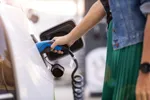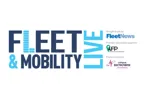Citroen is switching its attention from targeting fleet decision makers to pursuing user-chooser drivers as it looks to grow its fleet market share.
The French carmaker has already, over the past five years, shifted focus from an almost entirely retail-driven position towards one with an increasing interest in the fleet sector.
It ended the residuals-damaging cashback – described in hushed tones by some Citroen executives as the “c word” - and is doing fewer of the big discount retail deals, instead putting the money behind fleet offers judging by some of the contracts Fleet News has seen.
As a result, the sales mix has swung from 60:40 in favour of retail, to around 50:50.
“We are now driving retail in a way that is sympathetic to fleets,” according to Citroen marketing director Ian Hughes, who is also responsible for the fleet and user car operations.
He believes much of the work in getting onto the choice list - building residual values credibility - has been completed. Citroen targets a 10-point RV increase on three years/60,000 miles for an incoming model over the outgoing version and claims this has been achieved for the past four launches, including the C4 Picasso and Berlingo Multispace.
However, the brand is suffering both a lack of awareness and poor preconceptions with fleet user-choosers.
The latest advertising campaign, dubbed Citroen Economics, is intended to address this issue by appealing to retail and user-chooser drivers, with “single-minded messages”, said Hughes.
The spotlight will be put on residual values, wholelife costs, servicing, reliability, fuel efficiency, CO2 emissions and design.
“It’s our ‘project myth-buster’,” said Hughes, “and will bring to mind what Citroen product is and looks like.”
Fleet market share will consolidate to around 3.5% this year. Next year, new models like the C3 in January, which Citroen says moves from the Fiesta/Corsa competitor set to be a Focus/Astra rival, and the Mini/Fiat 500-challenging DS3, will enable Citroen to grow its fleet share.
Old C3 fleet sales accounted for just 30% of the mix; new C3 will be 40-50%. It will feature PSA’s new 3-cylinder engine, which has CO2 emissions of 90 and 99g/km.
The DS3, meanwhile, will be largely build-to-order with an anticipated 6-8 week delivery time.

















Login to comment
Comments
No comments have been made yet.